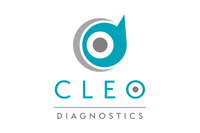Neovasc's Reducer System Reviewed in European Heart Journal
Neovasc announced the publication of a clinical review for their Neovasc Reducer device treating refractory/persistent angina pectoris.
Neovasc (NASDAQ:NVCN; TSX:NVCN) announced the publication of a clinical review for their Neovasc Reducer device treating refractory/persistent angina pectoris.
As quoted in the press release:
The European Heart Journal is the official general cardiology journal of the European Society of Cardiology.
Refractory angina is a common and disabling clinical condition, and a major public health problem, which affects patients’ quality of life, and has a significant impact upon health care resources. Persistent angina is common not only in patients who are not good candidates for revascularization, but also in patients following successful revascularization.
“Angina often persists following revascularization. The prevalence of this ‘persistent’ angina is as high as 25% after 1 year, and up to 45% after 3 years following revascularization,” reported Dr. Maayan Konigstein, Department of Cardiology, Tel-Aviv Medical Center.
Click here to read the full press release.
Source: www.newswire.ca



